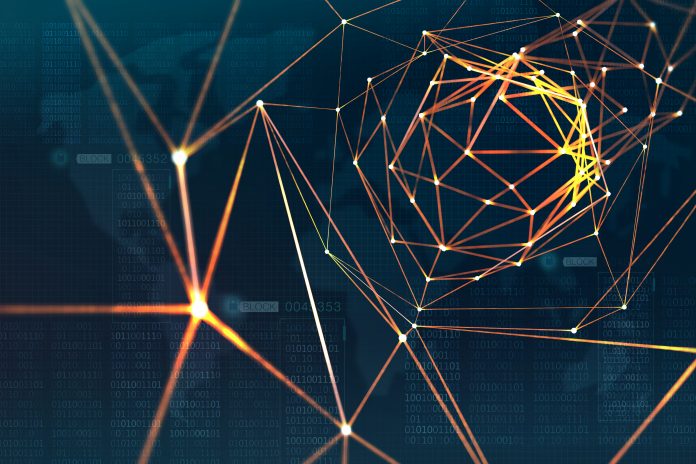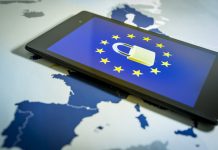Jeff Ruddle, Strategic Development Director at United Kingdom Accreditation Service, illuminates us on an aspect of accreditation that concerns the building block(chain)s of delivering confidence
Just as the internet was the foundation of the third industrial revolution, blockchain is one of the emerging technologies leading the development of Industry 4.0. Originally conceived and developed as the technology platform behind cryptocurrencies, blockchain is capable of bringing considerable efficiency and assurance gains across a wide range of activities and sectors. Any industry that relies on data records and their exchange is likely to be affected by blockchain technology, either now or in the very near future.
The latest blockchain survey by Deloitte reveals that over half of the enterprises surveyed have blockchain as one of their top five strategic priorities. A similar share of respondents believes blockchain will disrupt their industry, whilst only 6% were either unsure or didn’t see a use for the technology. The greater potential security, speed and transparency of blockchain technology were identified amongst the top advantages over existing systems, along with lower costs. The survey concludes that executives are more concerned over how existing business models might be disrupted by the mainstream adoption of blockchain technology, rather than whether the technology itself would work in their industry.
A similar global survey by PwC reported that whilst over 80% of respondents already had at least some involvement in blockchain technology, nearly half believed that regulatory uncertainty and a lack of trust amongst users were the two biggest barriers to adoption. Not understanding the technology itself aside, the largest challenges and doubts centred around the reliability, speed, security and scalability of blockchain-based systems. Perhaps most tellingly, the survey also revealed the industry was also concerned about a potential lack of standardisation and interoperability between blockchains.
Generating trust
In essence, blockchain is a method of safeguarding against data tampering allowing the digital record to be trusted. It works as a mutual distributed ledger (MDL), a data record that is maintained by multiple parties across multiple sites. The first key principle of a MDL is that whilst any party with the necessary permissions can add a block of data to the chain, no party can delete any part of that chain, so a continuous and transparent record is maintained. The second key principle is that the MDL is not centralised, with each authorised site holding an identical copy of the entire ledger that is automatically updated when a change is made at any site. Together, the continuous and decentralised nature of MDLs allows for quick and easy verification of the data, helping to generate confidence in its reliability.
Blockchain technology has the potential to move the underscoring of trust from its current mainly siloed and institutional basis to a more pan-organisation and technological one. However, this shift will only occur if the blockchain technology itself and the data being inputted can be trusted and verified. There is an opportunity here for blockchain technology and accreditation to work hand-in-hand to enhance trust and transparency across multiple sectors.
Managing risks
The introduction of any new technology or process has the potential to expose users and the wider markets to new risks. In seeking to mitigate those risks as far as possible, governments are increasingly favouring the speed and flexibility offered by accredited voluntary standards over the comparatively lengthy and restrictive development of specific regulations.
Whilst the potential incidence and significance of risk posed by blockchain technologies will vary according to industry and application, a joint study between Long Finance and PwC highlights three main areas of common concern; taxonomies and performance measurement; data governance and reliability; commercial governance and liability. The report concludes that the introduction of a voluntary standards market (reliant on a system of accredited conformity assessment) would benefit blockchain technologies across all three areas.
Exploring potential
With a potentially fundamental change on the horizon, industries have not sat still and are evaluating the potential gains and risks that blockchain offers them. Many of these sectors, such as food, environment and healthcare have already made wide use of accredited conformity assessment and recognise the benefits it brings them.
The food industry uses blockchain technology to help implement globally recognised standards into its supply chain. From laboratory test data to sampling and inspections under food verification schemes, blockchain technology enables a continual and practical way to access information at each stage of the product’s journey, from farm to fork. As highlighted in Bureau Veritas’s white paper on the subject, this allows retailers to better control supply chains and implement better product recalls, whilst satisfying increasing consumer demands for transparency and traceability. Owing to the requirement to remain impartial, we previously only referred to published papers and research reports, rather than individual companies. However, we would like to reference the work of classification society DNV GL, who point out that in addition to helping to mitigate risk, the data derived at each stage of the supply chain can also be used to drive improvements in both productivity and quality, as well as address industry-wide challenges.
A joint report between PwC and the World Economic Forum identifies over 65 existing and emerging cases where blockchain could be used to address some of the world’s most pressing environmental challenges, such as climate change and air pollution. Employing blockchain technology in environmental monitoring, reporting and verification could help companies better manage, demonstrate and improve their emissions performance under accredited environmental monitoring schemes such as MCERTS. Blockchain-based tokens could also be used to ensure more accurate, secure, traceable and transparent transactions under accredited emissions trading schemes such as the EU-ETS. Similarly, the ISEAL pilot scheme into the possible uses of blockchain technology in sustainability standards systems and certified supply chains, concluded that blockchain technology would help make audits more efficient and objective by allowing certifiers to verify the chain of custody and increase both data collaboration and privacy.
As highlighted in a Deloitte report, blockchain technology has the potential to transform the provision of healthcare services by increasing the security and interoperability of patient data. Blockchain-based medical records and laboratory test results could ensure patients are identified correctly and receive the most appropriate treatment. This is particularly true where care is delivered across numerous departments and providers, each operating its own record system. Together with blockchain-based staff qualification and training records, this could help improve performance and demonstrate competency under healthcare accreditation schemes such as QSI/ISAS, IQIPS, ISO 15189 medical laboratories and MPACE, in turn, assisting NHS providers with CQC inspection visits.
Keen to lead by example, UKAS has itself begun using blockchain technology in its own processes with the introduction of new e-Certificates, allowing quick and easy verification of the authenticity of accredited certification status by simply scanning a QR code.
Governments and organisations are now just starting to explore the potential applications of blockchain technology beyond cryptocurrencies, and it’s clear that they’ve only just begun to scratch the surface of its potential. The technology itself is not a silver bullet, as it is incapable of addressing all shortcomings within the systems and processes to which it is applied and is reliant on the data entered on the blockchain being valid and trusted. However, accredited conformity assessment is already delivering confidence in the quality assurance of goods and services in many of the areas where blockchain technology is increasingly being applied. Accreditation and blockchain share similar principles around transparent processes and traceable verification. UKAS’s vision is that everything that should be underpinned by UKAS accreditation, is. UKAS looks forward to working with regulators, industries and key stakeholders to maximise the potential benefits of this revolutionary technology.
Please note: This is a commercial profile











